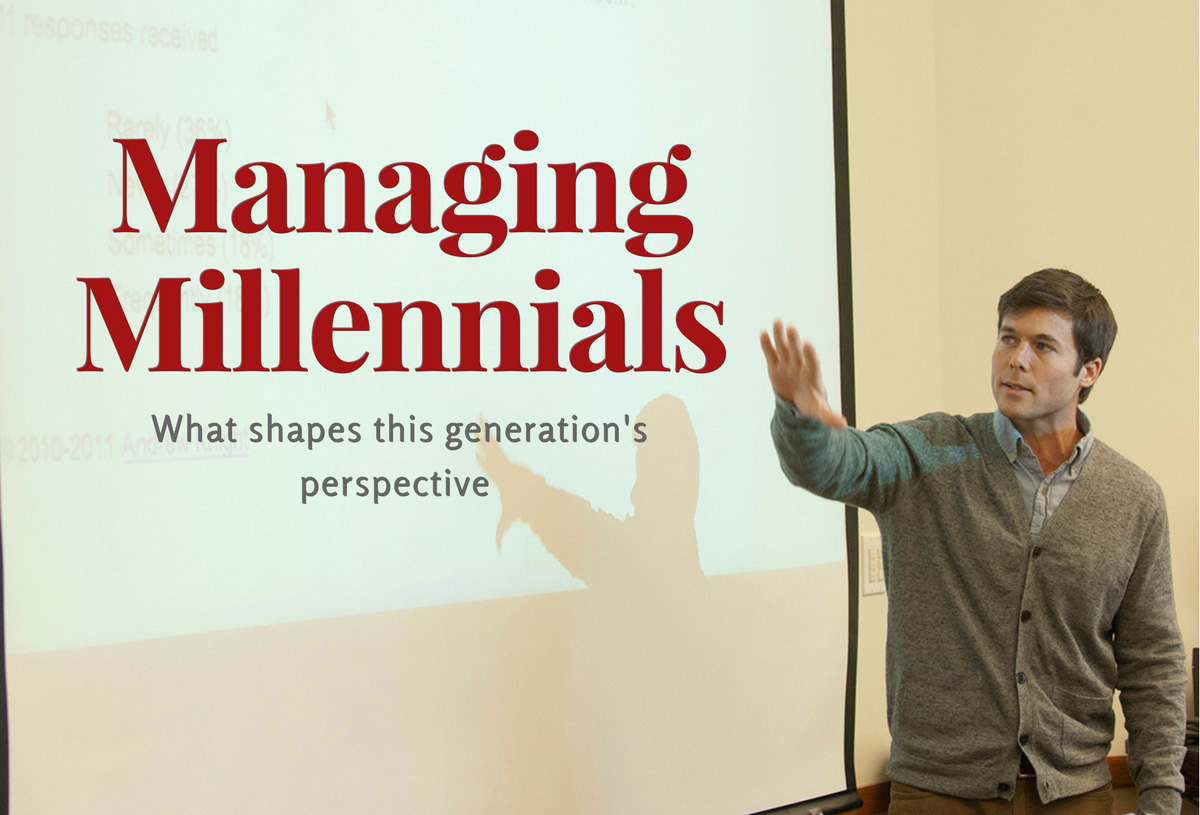Managing the Millennial wave
- August 7, 2017
- By Guest Blogger
- 2 minute read

Karen Bland wrote the following for the Olin Blog.
“Millennials in the workplace” is a big topic among non-millennials—both in the media and at work. So we tapped Andrew Knight, Associate Professor of Organizational Behavior, to shed some light on his research regarding this intriguing generation. He presented his findings in a recent webinar, identifying three trends that organizations are facing:
- Millennials are difficult to retain.
- Millennials prize their personal lives over their work lives.
- Millennials want opportunities to grow and develop.
I don’t think that anyone would argue that #2 and #3 aren’t positive or even natural from generation to generation. So let’s focus on the “difficult to retain” trend. Why? First off, millennials identify less and less with institutions, religion, and even voting. So they certainly aren’t going to drink the company Kool-Aid easily! They are always open to new endeavors and don’t readily choose to stay with a current employer for long. They want opportunities and they want to “work to live” (not necessarily the other way around). And when millennials work, they want to work in a less rigid environment, with plenty of mentoring and coaching along the way.
Millennials are often accused of being “entitled” and “narcissistic.” However, as Professor Knight pointed out, every American generation has been called the “most narcissistic” to date. And many of the measures which ladder up to the label of narcissistic—”self-esteem,” “drive,” and “persistence”—also build up to being a leader, which isn’t a bad thing.
So how do we best embrace and nurture the Millennial generation? Professor Knight shared some key thoughts to this point:
- Avoid stereotyping millennials as “entitled.”
- Recognize that this generation is the most diverse generation in history.
- Offer career opportunities within an organization, even if a promotion is not available or appropriate. Consider a geographic, functional, or divisional change.
- Redefine rigid roles and rules to address the fact that millennials value their personal lives more than their work lives. Consider flexible time, flexible roles, or a flexible location policy.
- Give the “annual” review more often than once a year. Millennials are hungry to grow and develop; they want coaching, ongoing feedback and opportunities.
Millennials are here to stay, and managers need to think about how to better structure positions and policies to better attract, develop, and keep this pool of talent.
Be sure to check out the “Managing the Millennial Wave” seminar scheduled for February 2018, as well as our other management and leadership offerings.
How millennial are you? Check out the Pew Center’s 14-question quiz.
Contact Us
For assistance in finding faculty experts, please contact Washington University Public Affairs.
Monday–Friday, 8:30 to 5 p.m.
Sara Savat, Senior News Director, Business and Social Sciences
314-935-9615
sara.savat@wustl.edu
Kurt Greenbaum,
Communications Director
314-935-7196
kgreenbaum@wustl.edu
